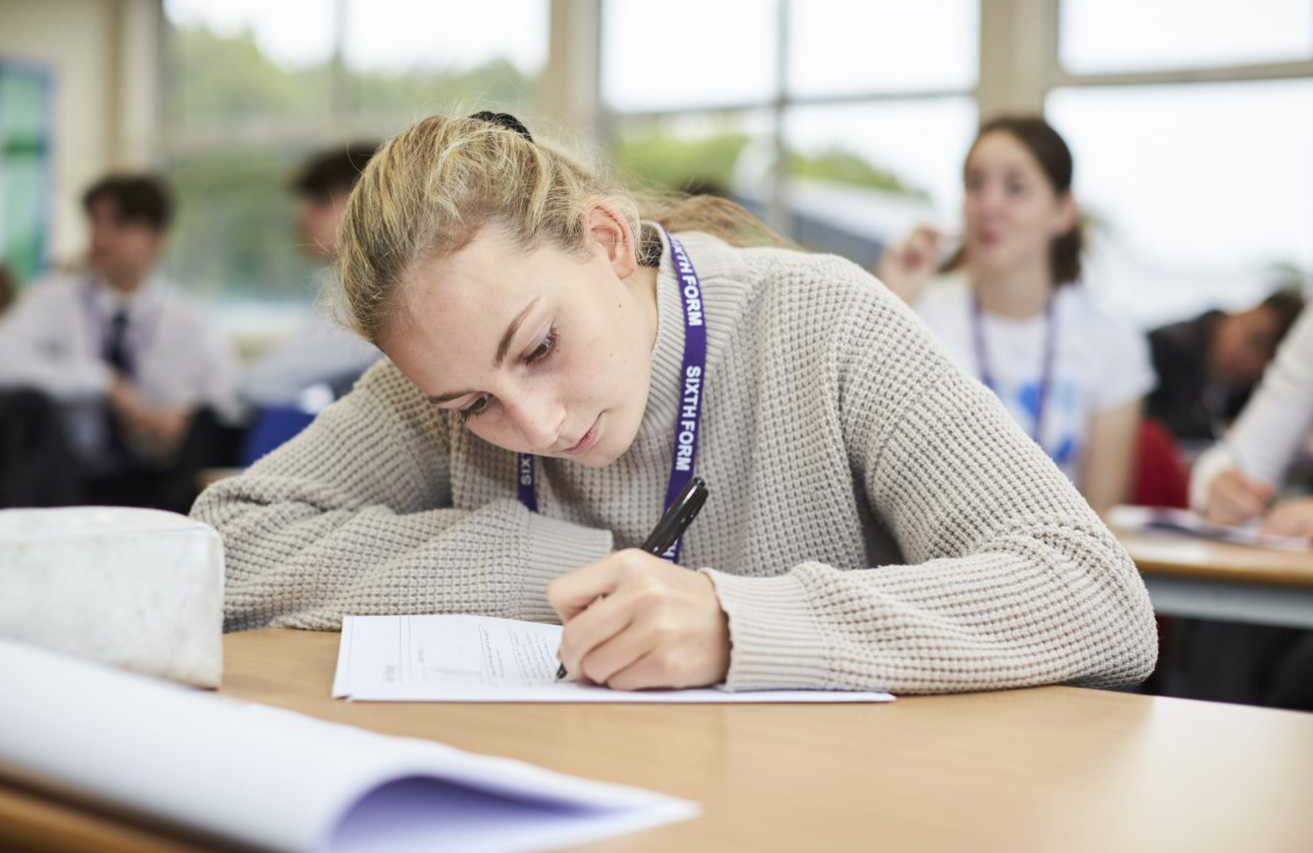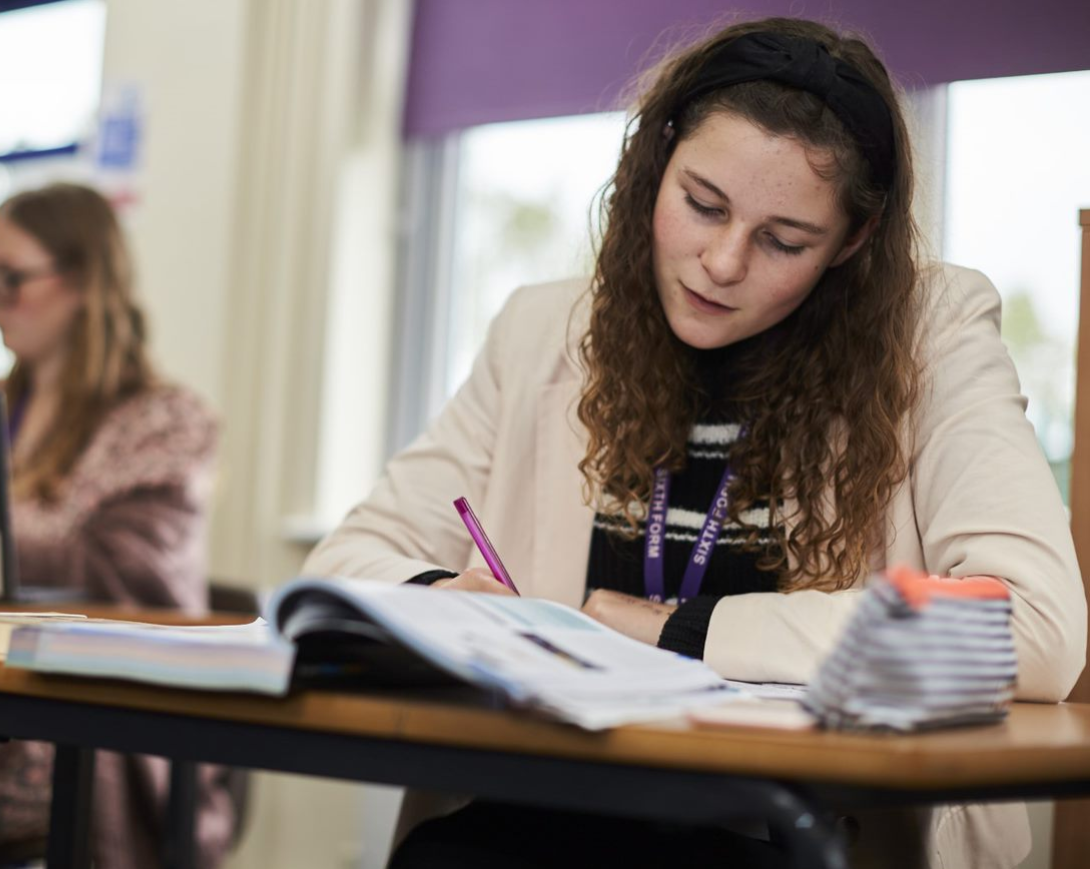English Literature
English Literature explores the complexities of human beings and the world around them by studying characters and their motivations. The grand themes of life and living are debated while reading texts from across the ages from modern to the 1600s. At the same time as enjoying reading, we explore how ideas and lives for different groups of people have both changed and stayed the same.
Our Curriculum
A-level English Literature allows students to focus on advanced texts with complex and mature themes. Students will develop their experiences of texts exploring the themes of love and war. Most of all, students will debate the motivations and actions of characters to explore the complexities of human nature and how our beliefs and ideas have changed over time.
'

Content
Across the two years, students will study prose, poetry and drama texts connected by wider thematic ideas. The first year is centred around ‘Love Through the Ages’ and the second, ‘Texts in Shared Contexts: World War One’. The shared themes allow students to read, compare and critically evaluate connections across texts, writers, contexts and conventions; all the while broadening and deepening their love and appreciation of Literature from across time periods.
In the ‘Love Through the Ages’ unit, students will study texts by Emily Bronte, a range of pre 1900 poets, William Shakespeare and a selection of pre and post 1900 poets for their unseen component of the examination. In the World War One unit, students will read texts by a variety of female poets, David Haig, Sebastian Faulks and a selection of prose writers from during and after the War itself, again for the unseen component of the examination.
The Non-Examined Assessment (coursework) unit allows students to explore their own interests in literature by selecting a comparative text to one chosen by the Academy. Up to now, we have studied ‘The Picture of Dorian Grey’ but this may change year on year. Students who have studied English Literature always comment on the great range of texts it allows them to read – after all, a student of English Literature is nothing if not an avid reader!
Entry Requirements
Please see the entry requirements document here
Is This Course Right For Me?
English Literature is every reader’s dream. The course will develop and nurture your passion for literature and expose you to a range of texts; across genres, times and contexts. Studying Literature requires a thoughtful, considerate and dedicated approach, wherein you will be expected to appreciate and evaluate writers’ intentions with a critical view. Wider reading expectations are extremely high; you will need to read around the subjects and texts, in detail. The examinations are a combination of closed and open book and both come at the end of the two years. There is also a coursework element where students can pursue texts (within reason!), a question and topic of their choosing. Successful students are those who ask questions, delight in thorough essay writing and are desperate to widen their repertoire of reading.
Do you enjoy debating? There are many opportunities in lessons to debate characters’ motivations and the wider themes of life.


Please watch our short video to see what studying English Literature at Guilsborough SIxth Form is like.
English allows me to write freely and impose my own style on the work whilst also learning about brilliant books, plays and poems.
Dan, Year 12 Student
I enjoy being able to debate alternative viewpoints within the class on a certain passage or quote and hear other people's thoughts.
Emily, Year 12 Student
English links well with my other subjects as we explore history, a play and how people work. It helps me to develop better writing skills that are useful everywhere.
Anon.
Where will A Level English Literature take me past Sixth Form?
CAREERS
Careers after English Language and Literature are many and varied. However, this course is particularly suited to people interested in working in any field that involves communication (which is almost any career!).
This course is suitable for students wishing to read English or English Literature. Students might also progress in to publishing, creative, screen or script writing, teaching or theoretical studies. It is also a very strong complementary subject for students wishing to read History, Law or Drama and any university course that will include extensive essay writing. Many science courses also like students who can articulate themselves clearly in an essay format. This A Level will add considerable weight and value to any UCAS, apprenticeship or employment application.
UNIVERSITY
English A-levels can lead to a variety of degree level courses, including: politics, history, performing arts, media (in all its forms), journalism, creative writing, management, geography, psychology, sociology, policing. It is compatible with many subjects because its focus is on peoples’ (or characters’) behaviour, their motivations and how they communicate.
University of Oxford - English requires AAA
University of Loughborough - BA Hons English or various joint honours including English with History, Drama or Sports Science requires AAB (A in English)
University of Northampton - BA Hons English requires typically BCC
De Montfort University - BA Hons English Language and Literature requires112 points from at least 2 A levels and including grade C or above in English Language or Literature
Aberystwyth University - BA Hons Creative Writing requires BBB to BCC
Kingston University - BA Hons Filmmaking: UCAS tariff points requires 112-128
Level 3 qualifications, including art and design subjects (A-levels, BTEC Diploma, Foundation Diploma in Art and Design, Access Diploma, IB Diploma, etc.).

